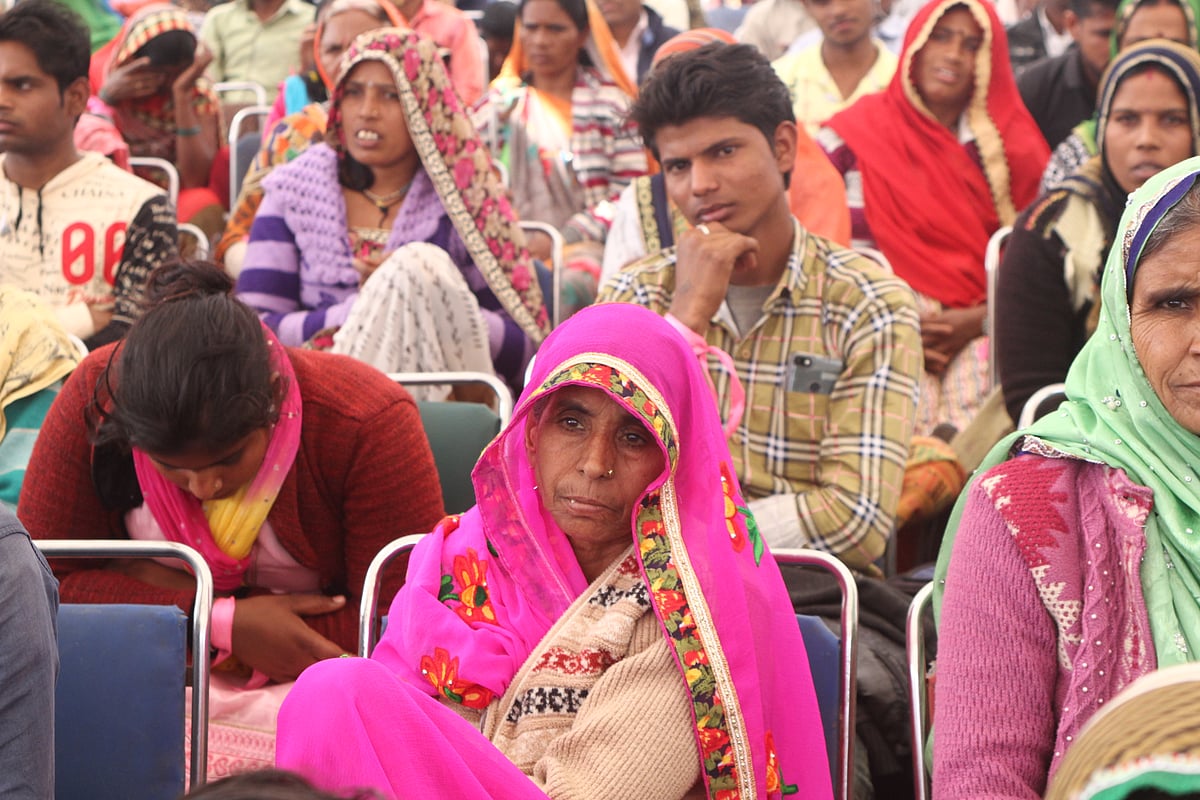Survivors of sexual violence come together to demand ‘change’
Five thousand victims of sexual violence from five states congregated in the national capital on Friday at the culmination of the Dignity March organised by Rashtriya Garima Abhiyan

Upper-caste rapists of Bhanwari Devi are still at large. The gang rape had sent shockwaves through the country and forced the formulation of Vishaka Guidelines for prevention of sexual harassment at workplace. But a quarter century after the gangrape, Bhanwari Devi from Rajasthan is still waiting for the rapists to be punished.
She was there at the Ramlila Maidan in the national capital on Friday.
There was Kiran from Dhule (Maharashtra) who was invited to join neighbours on a sightseeing trip and then sold to a man in Rajasthan who kept her confined and raped her for weeks. Already married and with a three-year old child at home, when she finally escaped, she was pregnant with her tormentor’s child. She came with the one-year-old boy.
Gita Devi from Uttar Pradesh was also part of the gathering. Her daughter was raped several times since 2014 by the same man. “My daughter was in Class VII when she was first assaulted. We went to the police station but the policemen sided with the perpetrators. My daughter was raped five times until 2017, when eventually a case was registered. But it hasn’t moved since then. Her daughter should not have to face the shame for the crime committed by another.
Another mother, Rekha from Neemuch (Madhya Pradesh) sat next to Geeta Devi. Her 16-year old daughter was raped by a relative, who abandoned her after she became pregnant.
“But we have no peace. Everyone around us asks what we plan to do with my daughter and her child. It is my daughter and her child. What was the fault of my daughter,” asks the feisty lady who has filed a case and ensured that the man is put in jail.
For the past two months, 65 days to be precise, they had walked, travelled in buses and trains, spoke about their plight and bonded with other victims of sexual violence. At the culmination of the ‘Dignity March’, the women, some accompanied by men from their family, some with children and a few with their mothers, converged in New Delhi to tell leaders, lawmakers and the media about their plight.

The country has seen a 35.73% increase in crimes against women from 2012 to 2016, figures for which are available. The National Crimes Record Bureau thereafter stopped collecting and recording the data, possibly in the hope that like data on joblessness, the absence of data would make the issue disappear.
The march in Delhi was the last leg of the 10,000 km march covering 24 states for more than two months from December 20, 2018, educating people against sexual violence and abuse.
“There were more than 25,000 survivors who supported us in various cities. We ensured that we interacted with men too because unless their mentality changes, no change will be seen on the ground,” says Ashif Sheikh, one of the organisers of the ‘Dignity March’.
Sheikh began working with women who were employed as manual scavengers in Madhya Pradesh and realised that a major problem they faced was sexual abuse and violence. RGA, he claims, has helped more than 11,000 victims and survivors across north India.
“The March has ended today, but this is a start of a movement to safeguard the victims of sexual crimes,” explains Sheikh.
The women called on several political leaders in the hope of driving social change through policies. Congress general secretary Priyanka Gandhi met with 40 of the survivors to understand the realities they face on the ground.
During the march, in Jharkhand, the women met Louis Marandi, the minister for women and child development; in Madhya Pradesh and Chhattisgarh they met chief ministers Kamal Nath and Bhupesh Bhagel and in Bihar they called on the social justice minister KPN Verma. They hope some of these meetings would help initiate change in policies, systems and the law.
For many women it was not just a journey of just 65 days. It was a culmination of their struggles for years
Follow us on: Facebook, Twitter, Google News, Instagram
Join our official telegram channel (@nationalherald) and stay updated with the latest headlines